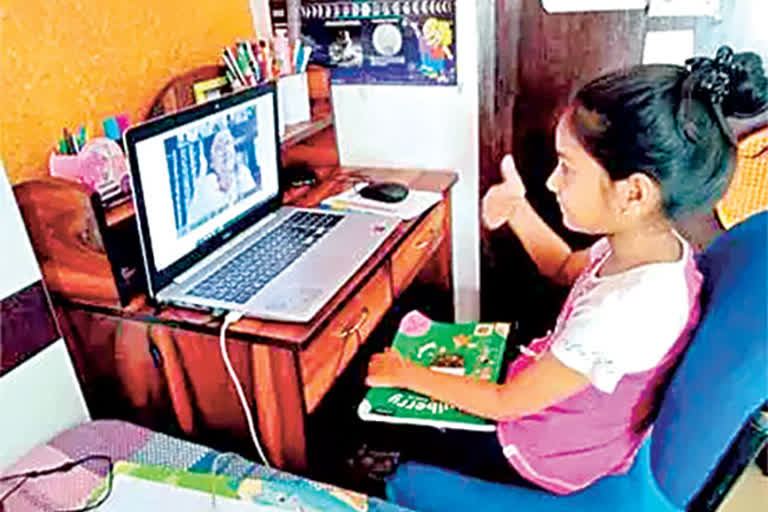Hyderabad (Telangana):Online media platforms like WhatsApp and Youtube have replaced conventional teaching institutes for over two lakh students in Telangana social and tribal welfare residential educational establishments, who now live at homes mostly in rural and remote corners of the state due to the ongoing lockdown.
As soon as the lockdown was implemented across the country, including Telangana, these students studying in various residential schools belonging to Telangana Social Welfare Residential Educational Institutions Society (TSWREIS) and Telangana Tribal Welfare Residential EducationalInstitutions Society (TTWREIS), were sent back home.
The institutes teach up to degree from class V. In a bid to ensure that the students are in regular touch with the curriculum, teachers were asked to use technologies to reach out to the pupils and keep them updated, R S Praveen Kumar Secretary, TSWREI and TTWREI Societies said.
The TSWREIS runs 268 (boys-93; girls-173 and Co-Ed-2) educational institutions and TTWREIS-179 institutions (boys-68 and girls-111). Nearly 1.5 lakh and over 60,000 students are pursuing studies from class five to graduation level in TSWREIS and TTWREIS institutions respectively, Kumar, an IPS officer, said.
"The unprecedented COVID-19 pandemic has thrown up several challenges to teachers, students, parents and educational administrators across the globe.
We have risen to this challenge in an innovative way and embraced the digital online platforms to promote teaching and learning among the students and to bridge the gap created due to the closure of educational institutions, the official told a news agency.
Read:NRI provides financial support to help hometown poor in Telangana
Teachers were asked to shift focus to online tools like WhatsApp, Facebook, YouTube, e-textbooks and SCERT (State Council of Educational Training and Research, Telangana) books and T-SAT television channel, among other platforms, to promote academic activities, minimizing the disruption to the academic schedule and significantly increasing student engagement during the lockdown period, he added.
